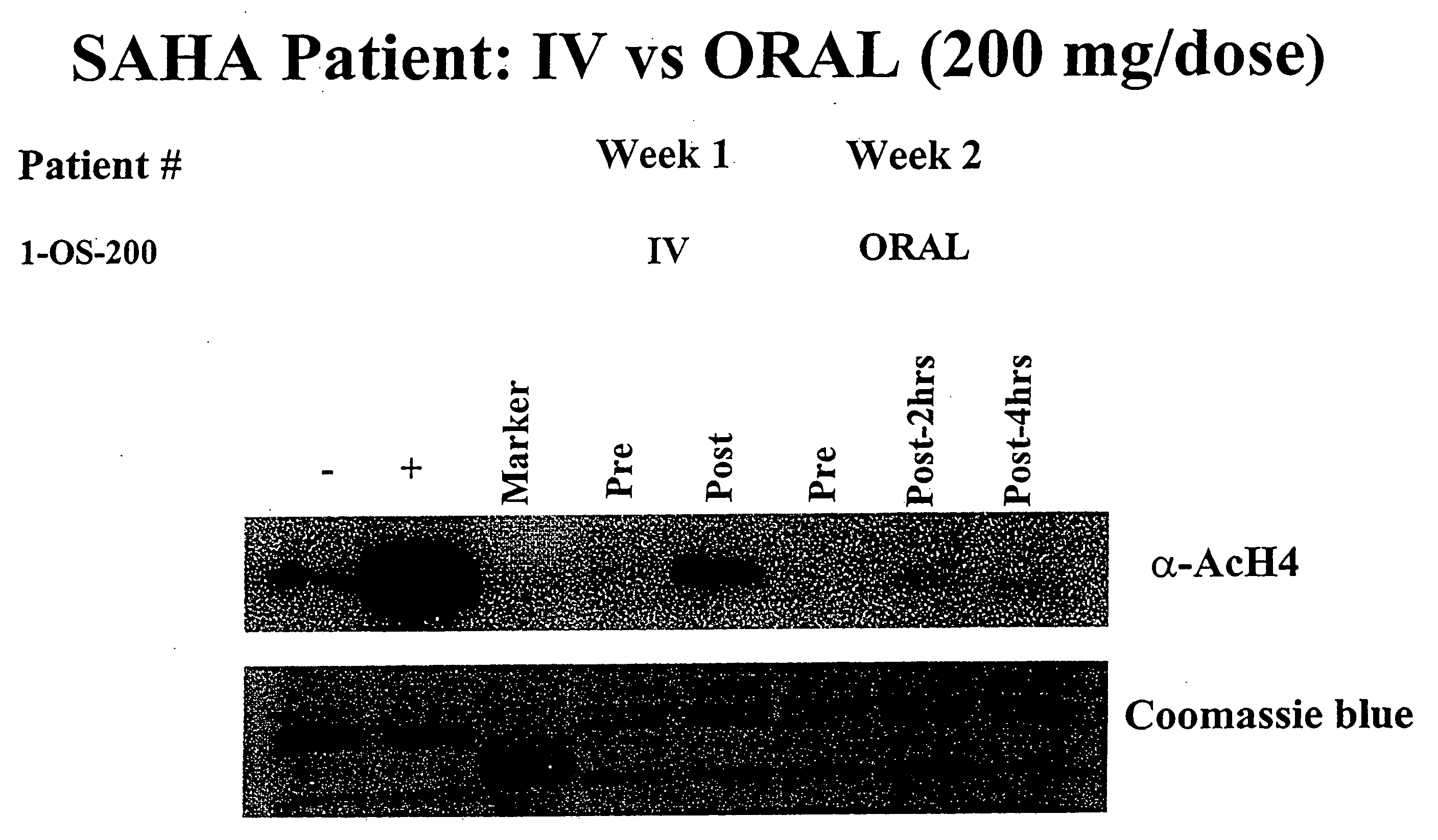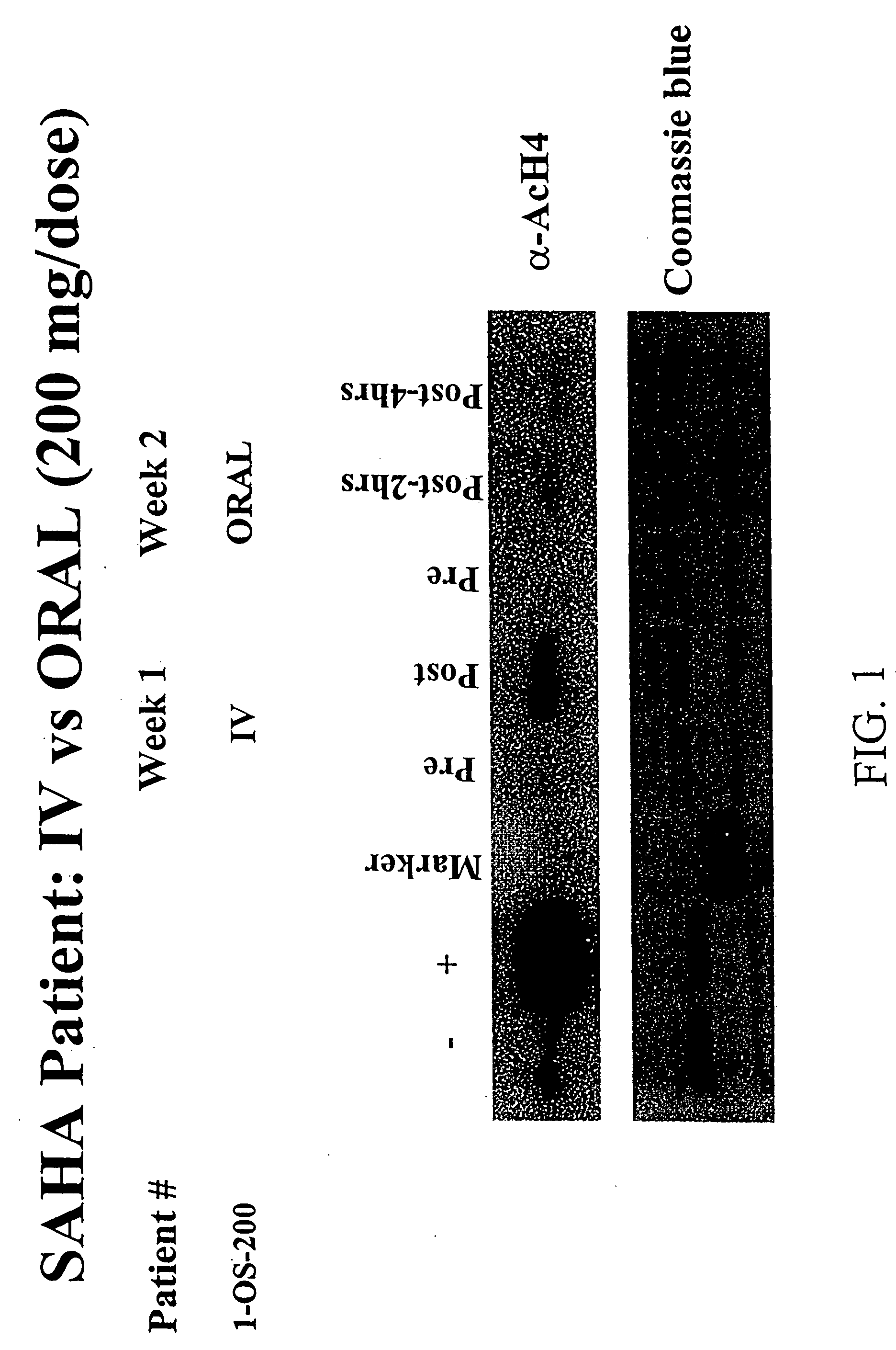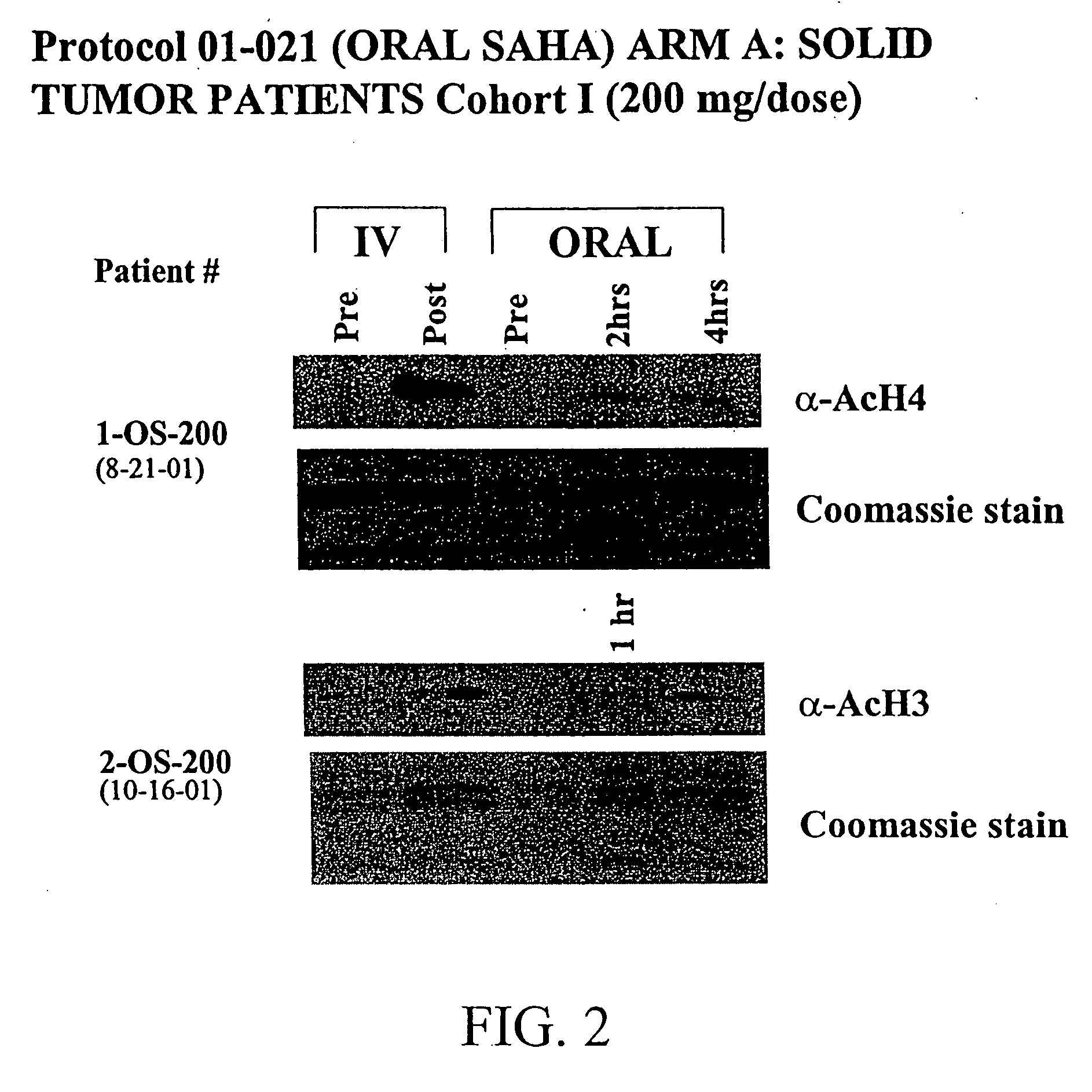Methods of treating cancer with HDAC inhibitors
a technology of hdac inhibitors and cancer, applied in the field of cancer treatment, can solve the problems of increasing the risk of contracting leukemia, and exposure to electromagnetic fields, and achieves high blood levels of active compounds, favorable pharmacokinetic profiles, and high bioavailability.
- Summary
- Abstract
- Description
- Claims
- Application Information
AI Technical Summary
Benefits of technology
Problems solved by technology
Method used
Image
Examples
example 1
Synthesis of SAHA
[0280]SAHA can be synthesized according to the method outlined below, or according to the method set forth in U.S. Pat. No. 5,369,108, the contents of which are incorporated by reference in their entirety, or according to any other method.
Synthesis of SAHA
Step 1—Synthesis of Suberanilic Acid
[0281]
[0282]In a 22 L flask was placed 3,500 g (20.09 moles) of suberic acid, and the acid melted with heat. The temperature was raised to 175° C., and then 2,040 g (21.92 moles) of aniline was added. The temperature was raised to 190° C. and held at that temperature for 20 minutes. The melt was poured into a Nalgene tank that contained 4,017 g of potassium hydroxide dissolved in 50 L of water. The mixture was stirred for 20 minutes following the addition of the melt. The reaction was repeated at the same scale, and the second melt was poured into the same solution of potassium hydroxide. After the mixture was thoroughly stirred, the stirrer was turned off, and the mixture was al...
example 2
Oral Dosing of Suberoylanilide Hydroxamic Acid (SAHA)
[0291]Background: Treatment with hybrid polar cellular differentiation agents has resulted in the inhibition of growth of human solid tumor derived cell lines and xenografts. The effect is mediated in part by inhibition of histone deacetylase. SAHA is a potent histone deacetylase inhibitor that has been shown to have the ability to induce tumor cell growth arrest, differentiation and apoptosis in the laboratory and in preclinical studies.
[0292]Objectives: To define a safe daily oral regimen of SAHA that can be used in Phase II studies. In addition, the pharmacokinetic profile of the oral formulation of SAHA was be evaluated. The oral bioavailability of SAHA in humans in the fasting vs. non-fasting state and anti-tumor effects of treatment were also monitored. Additionally, the biological effects of SAHA on normal tissues and tumor cells were assessed and responses with respect to levels of histone acetylation were documented.
[0293...
example 3
Oral Dosing of Suberoylanilide Hydroxamic Acid (SAHA)-Dose Escalation
[0297]In another experiment, twenty-five patients with solid tumors have been enrolled onto arm A, thirteen patients with Hodgkin's or non-Hodgkin's lymphomas have been enrolled onto arm B, and one patient with acute leukemia and one patient with myelodysplastic syndrome have been enrolled onto arm C, as shown in Table 4.
TABLE 4Dose Escalation Scheme and Number of Patients on Each Dose LevelDoseDosing#Patients EnrolledCohort(mg / day)Schedule#Days of DosingRest Period(arm A / arm B / arm C)*I200Once a dayContinuousNone6 / 0 / 0II400Once a dayContinuousNone5 / 4 / 2III400q 12 hoursContinuousNone6 / 3 / 0IV600Once a dayContinuousNone4 / 3 / 0V200q 12 hoursContinuousNone4 / 3 / 0VI300q 12 hoursContinuousNone— / — / —Sub-totals: 25 / 13 / 2Total = 40*Arm A = solid tumor, arm B = lymphoma, arm C = leukemia
Results:
[0298]Among eleven patients treated in Cohort II, one patient experienced the DLT of grade 3 diarrhea and grade 3 dehydration during the first...
PUM
| Property | Measurement | Unit |
|---|---|---|
| total volume | aaaaa | aaaaa |
| enantiomeric excess | aaaaa | aaaaa |
| enantiomeric excess | aaaaa | aaaaa |
Abstract
Description
Claims
Application Information
 Login to View More
Login to View More - R&D
- Intellectual Property
- Life Sciences
- Materials
- Tech Scout
- Unparalleled Data Quality
- Higher Quality Content
- 60% Fewer Hallucinations
Browse by: Latest US Patents, China's latest patents, Technical Efficacy Thesaurus, Application Domain, Technology Topic, Popular Technical Reports.
© 2025 PatSnap. All rights reserved.Legal|Privacy policy|Modern Slavery Act Transparency Statement|Sitemap|About US| Contact US: help@patsnap.com



